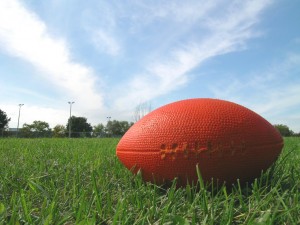 TAMPA, Fla. — The Florida High School Athletic Association (FHSAA) has been leveled with a civil lawsuit after it banned a Christian school from presenting a prayer over the loudspeaker prior to a game between two Christian schools.
TAMPA, Fla. — The Florida High School Athletic Association (FHSAA) has been leveled with a civil lawsuit after it banned a Christian school from presenting a prayer over the loudspeaker prior to a game between two Christian schools.
Cambridge Christian School is seeking an injunction, as well as a declaratory judgment that the Association’s policy violates both the U.S. and Florida Constitutions.
According to the lawsuit, Cambridge Christian School has a practice of praying over the loudspeaker at every game, and intended to continue its tradition when it earned a spot at the Class 2A Florida state football championship. As its opponent, University Christian School, was also a Christian institution, the two decided to lead attendees in joint prayer at the game.
Since the championship—held last December at Camping World Stadium—was in a large venue, the schools requested permission to use the loudspeaker so the prayer could be heard. But the request was denied due to the Association’s belief that the allowance would be illegal.
“Although both schools are private and religious-affiliated institutions, the federal law addresses two pertinent issues that prevent us from granting your request,” wrote Executive Director Roger Dearing. “First is the fact that the facility is a public facility, predominantly paid for with public tax dollars, makes the facility ‘off limits’ under federal guidelines and precedent court cases.”
“Second is the fact that in Florida Statutes, the FHSAA (host and coordinator of the event) is legally a ‘state actor’ we cannot legally permit or grant permission for such an activity,” he said.
Therefore, the schools did not use the loudspeaker at the championship game, but rather only prayed together at the 50-yard line. Other messages that were secular in nature were allowed to be broadcast.
“Because of the size of the stadium, the students, parents, and other Cambridge Christian and University Christian supporters in the stands could not hear the teams’ midfield pre-game prayer,” Cambridge’s legal complaint outlines. “Thus, by denying access to the loudspeaker, the FHSAA denied the students, parents, and fans in attendance the right to participate in the players’ prayer or to otherwise come together in prayer as one Christian community.”
Following the game, the Association issued a press release advising that any future requests to use the loudspeaker would be denied.
“Cambridge Christian has a well-founded fear that it will continue to be prohibited at future FHSAA championship series games from engaging in community prayer through the use of the loudspeaker as a result of the FHSAA’s policy,” the school states in its complaint.
It is now seeking judicial intervention to regain the right to pray over the loudspeaker at future championship events.
“This is a clear case of governmental interference in a private school’s right to exercise its religious freedom,” said Jeremy Dys, senior counsel for First Liberty Institute, which is representing Cambridge Christian School in court. “Pre-game prayer is not only a long-standing tradition for Cambridge Christian; it is fundamental to its reason for being.”
“This is a case about the restriction of a Christian school’s private speech through a policy and practice that discriminates between religious and secular speech,” Adam Foslid, an attorney with Greenberg Traurig, also remarked. “The Constitution requires a government policy of neutrality toward private religious speech—one that neither endorses nor censors such speech.”
Become a Christian News Network Supporter...


